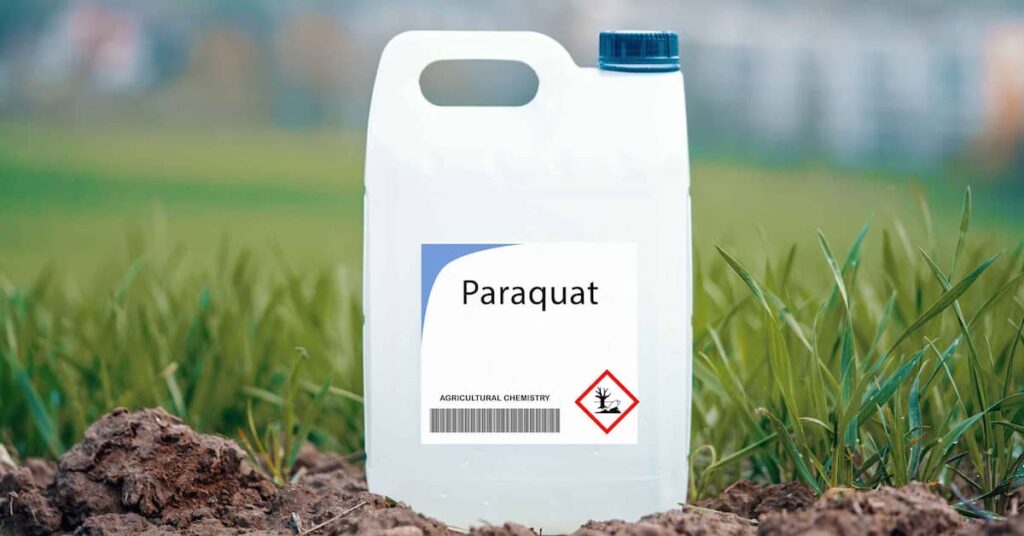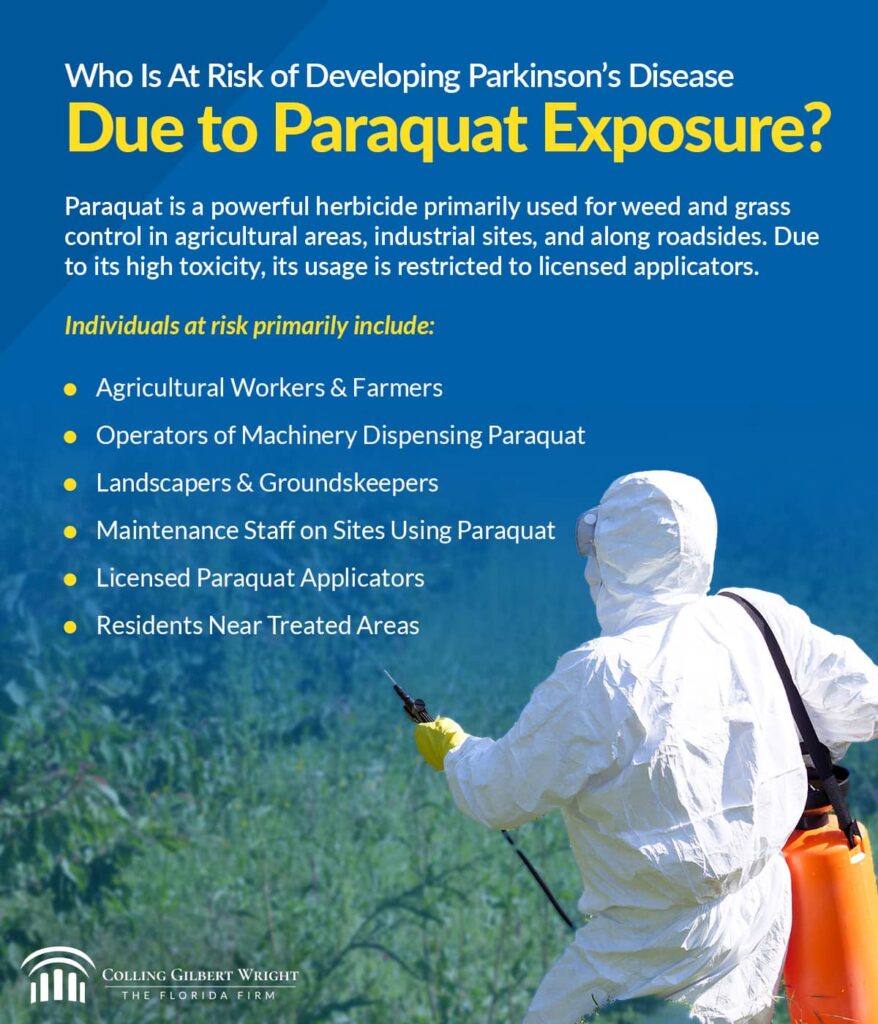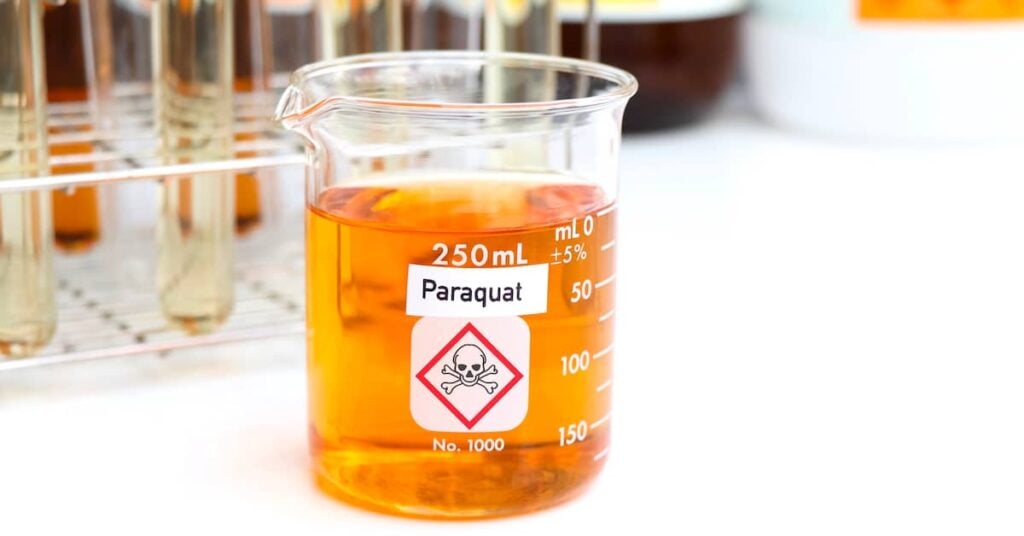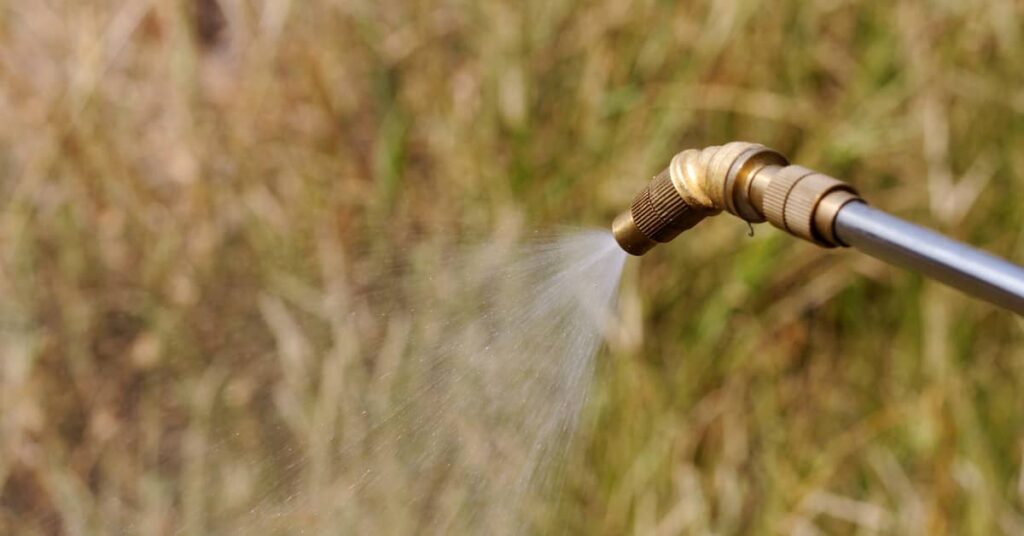Paraquat Lawsuits for Parkinson’s Disease: Understanding the Risks & Consulting a Paraquat Lawyer
The paraquat lawsuit lawyers at Colling Gilbert Wright are currently accepting new cases for individuals who developed Parkinson’s Disease after exposure to paraquat. In recent years, paraquat, a widely used herbicide, has become the subject of increasing legal scrutiny. As knowledge about its potential hazards grows, so does the importance of understanding paraquat lawsuits.
Paraquat is widely known to be a highly toxic chemical that can cause devastating damage should it be ingested. The CDC informs that even small amounts of paraquat herbicide can wreak havoc on the body, causing nausea, vomiting, and abdominal pain, or even kidney, liver and/or heart failure. However, we’ve slowly become aware that there is also an increased risk of Parkinson’s disease resulting from prolonged low-level exposure.
Individuals affected by paraquat exposure are turning to paraquat lawyers for justice, holding manufacturers accountable for the dangerous products they produce. Learn more about those potentially impacted and why consulting with a product liability lawyer is crucial.
At Colling Gilbert Wright, our Orlando paraquat lawyers are deeply invested in examining cases where Parkinson’s disease may have resulted from paraquat exposure. We are committed to doing not only the right thing but the exceptional thing. In this case, that means ensuring that our clients seek the justice they deserve for the irreparable harm they’ve suffered.
Call us at (407) 712-7300 or contact us online today to schedule a FREE case evaluation. We may not be able to fix it, but we will pursue compensation from those responsible for your pain. We are proud to serve nationwide and throughout Florida.

What Is Paraquat?
Paraquat dichloride, commonly known as paraquat, is a chemical agent primarily used as a potent herbicide for weed and vegetation control. It was first available as a commercial herbicide in 1962. However, paraquat has become one of the most commonly used herbicides in the U.S. over the last two decades. It’s widespread use is partially attributed to weeds developing a resistance to alternative herbicides.
Despite its effectiveness in controlling weed and grass growth, paraquat poses significant health risks if not handled properly. Due to its high toxicity, paraquat herbicide is classified as a “restricted use” product in the United States, meaning it can only be used by licensed applicators.
The Growing Concern Around Paraquat
The health risks associated with paraquat have long been a concern. The Environmental Protection Agency (EPA) asserts that even “one sip can kill!” Exposure to paraquat herbicide, especially through ingestion or inhalation, can lead to severe and sometimes fatal health consequences, including lung damage, heart failure, and kidney failure.
Most alarming, however, is the growing body of research suggesting a link between paraquat exposure and Parkinson’s disease. Studies indicate that individuals exposed to paraquat herbicide may have a higher risk of developing this progressive neurological disorder marked by tremors, rigidity, and mobility loss. Unfortunately, Parkinson’s disease is incurable and can profoundly impact your quality of life.
Chevron, a key defendant in paraquat litigation, acknowledges the extensive medical literature detailing paraquat’s harmful effects on both animals and humans. However, the connection with Parkinson’s disease emerged from later studies.
A pivotal 2009 research article in the American Journal of Epidemiology revealed that residing within 1600 feet of paraquat-sprayed zones significantly increased Parkinson’s Disease risk. A more exhaustive investigation in 2011 reinforced these findings, indicating a robust link between paraquat exposure and Parkinson’s. Initial criticisms targeted the methodology and accuracy of these studies primarily because they were not “controlled.”
However, in 2014, this skepticism was addressed. Five new case-controlled studies featured in the Annual Review of Pharmacology and Toxicology established a clear correlation: Paraquat exposure heightened the risk of developing Parkinson’s disease. These findings were significant enough to prompt the EPA in 2016 to reevaluate paraquat’s safety profile, marking a crucial step in understanding its health implications.
Who Is At Risk of Developing Parkinson’s Disease Due to Paraquat Exposure?
Paraquat is a powerful herbicide primarily used in agriculture for weed and grass control. It’s known for its effectiveness in eliminating green vegetation and is often applied in no-till farming, orchards, and cotton fields. Due to its high toxicity, its usage is restricted to licensed applicators.
Besides agricultural applications, paraquat is also used for weed control in non-crop areas like industrial sites and along roadsides. Its ability to quickly desiccate and kill plants makes it a popular choice for controlling invasive weed growth and preparing fields for planting. However, its use has raised health concerns, particularly its potential link to Parkinson’s disease.
Individuals at risk of developing Parkinson’s disease due to paraquat exposure primarily include those in the agricultural sector and residents living near areas where paraquat herbicide is used.
Key groups at risk are:
- Agricultural Workers & Farmers: Those who handle and apply paraquat directly are at significant risk due to regular exposure.
- Machinery Operators: Individuals operating equipment that dispenses paraquat are exposed to its particles.
- Landscapers & Groundskeepers: Professionals who manage large areas of vegetation using paraquat.
- Maintenance Staff: Workers maintaining farms or agricultural sites where paraquat is used.
- Licensed Paraquat Applicators: Due to the restrictions on paraquat use, only licensed professionals can apply it, putting them at direct risk.
- Residents Near Treated Areas: People living close to farms or fields where paraquat is sprayed may be exposed to airborne particles, increasing their risk of Parkinson’s disease.
The risk is heightened due to the potential for inhalation or indirect contact with paraquat herbicide, which can lead to the accumulation of toxins in the body over time, eventually damaging the neurons responsible for producing dopamine and potentially leading to Parkinson’s disease.
What Is Paraquat Found In?
Paraquat is found in various herbicide products used in agricultural settings, especially for crops like cotton, soybeans, and corn. It’s often chosen for its efficiency in controlling weed resistance to other herbicides. However, its presence isn’t limited to large-scale farms; paraquat can also be found in products used for landscaping and gardening in smaller, non-agricultural contexts.

What Are the Brand Names of Paraquat?
While more than 67 countries have banned the use of paraquat, it remains one of “the most widely used herbicides in the United States,” according to the EPA. In fact, it seems that usage has actually increased in recent years. Some common brand names that you may find paraquat sold under include:
- Blanco®
- Bonedry
- Bonfire Herbicide
- Cyclone™ SL 2.0
- Cyclone® Star
- Devour™
- Firestorm®
- Helmquat 3SL
- Gramoxone Inteon®
- Gramoxone® SL
- Gramoxone® SL 3.0
- PP148
- Para–Shot 3.0
- Parazone® 3SL
- Purgatory™ 3 SL
- Quik–Quat™
- Tigris™ Paraquat 3SL
- Willowood
What Does Paraquat Do to the Brain?
Paraquat herbicide has been linked to detrimental effects on the brain, particularly concerning its association with Parkinson’s disease. Exposure to paraquat can lead to oxidative stress, a critical factor in the development of Parkinson’s. This stress damages cells through the production of harmful molecules known as reactive oxygen species.
In the brain, paraquat’s oxidative stress primarily targets dopamine-producing neurons in a region called the substantia nigra. These neurons are crucial for regulating motor functions. The damage and eventual death of these neurons due to oxidative stress result in decreased dopamine levels, a hallmark of Parkinson’s disease. This reduction in dopamine leads to the characteristic symptoms of Parkinson’s, such as tremors, muscle rigidity, and impaired movement.
The exact mechanism of how paraquat induces this oxidative stress in human brain cells is a subject of ongoing research. However, the correlation between paraquat exposure and an increased risk of Parkinson’s disease has been consistently noted in scientific studies, raising significant public health concerns.
What Is Parkinson’s Disease?
Parkinson’s disease is a progressive neurological disorder that primarily affects motor function due to the loss of dopamine-producing brain cells. The initial sign of Parkinson’s disease is often a minor tremor in one hand. While tremors are a typical symptom, the condition can also lead to muscle stiffness or slowness of movement. As the disease progresses, symptoms typically intensify, leading to difficulties in walking, balance, and coordination.
The exact cause of Parkinson’s is unknown, and while there’s currently no cure, treatments focus on managing symptoms to improve quality of life. Various medications can greatly alleviate symptoms. In some cases, a doctor might recommend surgical intervention to target specific areas of the brain, aiming to enhance symptom management.
What Are Parkinson’s Disease Symptoms?
Parkinson’s disease progresses gradually, with initial minor symptoms becoming more severe over time. Key indicators include:
- Tremors
- Slowed Movement (Bradykinesia)
- Rigidity or Muscle Stiffness
- Impaired Posture & Balance
- Loss of Automatic Movements (blinking, smiling, etc.)
- Speech Changes
- Writing Changes
As Parkinson’s disease progresses, these symptoms typically become more severe, impacting various aspects of daily life. In the advanced stages of Parkinson’s, additional symptoms may include:
- Cognitive Impairments
- Emotional Changes (depression, anxiety, mood swings, etc.)
- Swallowing & Speaking Difficulties
- Sleep Disturbances
- Bladder & Bowel Problems.
- Altered Sense of Smell & Vision
Each individual’s experience with Parkinson’s varies, and not all patients will face all symptoms. The rate of progression also differs widely among individuals.

How Long After Exposure to Paraquat Does Parkinson’s Appear?
The time between exposure to paraquat herbicide and the onset of Parkinson’s disease symptoms can vary widely. Typically, Parkinson’s symptoms develop years, or even decades, after exposure.
This latency period makes it challenging to pinpoint a precise timeline, as factors like the level and duration of exposure, individual health, and genetic predisposition play significant roles. Generally, Parkinson’s symptoms emerge gradually and are often noticed only when they significantly impact daily activities.
The Basis of Paraquat Herbicide Lawsuits
The surge in paraquat lawsuits primarily revolves around allegations that the manufacturers failed to warn users adequately about the product’s risks. Plaintiffs argue that they were not sufficiently informed about the potential for paraquat to cause Parkinson’s disease and other serious health issues.
These lawsuits fall under product liability law, a legal area that holds manufacturers, distributors, and retailers responsible for putting a defective or dangerous product into the hands of consumers.
Who Qualifies for a Paraquat Lawsuit?
Should you or someone close to you have Parkinson’s disease due to paraquat exposure, you might have grounds to pursue legal action against its manufacturers. Numerous claims are already in motion against key paraquat manufacturing companies such as:
- Chevron
- Syngenta
- Growmark
In a paraquat lawsuit, plaintiffs generally seek compensation for:
- Medical expenses, including costs of ongoing treatments
- Lost wages and loss of earning capacity
- Pain and suffering
In cases of wrongful death, there may be additional damages available for the loss of a loved one. The compensation amount varies based on the severity of the exposure, the extent of the injuries, and other case-specific factors.
How Do You Prove You Were Exposed to Paraquat?
To prove exposure to paraquat herbicide, you typically need evidence of your presence in areas where paraquat was used, such as farms or agricultural sites. This can include:
- Employment records
- Testimonies from coworkers
- Proof of residence near treated fields
- Purchasing records
- Licenses for applying paraquat
An experienced dangerous products attorney can assist you in assembling the necessary evidence should you have a viable claim. Consulting a paraquat lawyer is in your best interest should you believe that your Parkinson’s is a result of paraquat exposure.
The Role of Paraquat Lawyers in Seeking Justice
Paraquat lawyers handle cases related to dangerous products. They possess the knowledge and experience required to tackle the nuances of such claims, including understanding the scientific and medical aspects of paraquat exposure. Their skill is not only in litigating but also in providing the compassion and support victims deserve during such challenging times.
How Can a Lawyer Help in a Paraquat Lawsuit?
If you or a loved one has been exposed to paraquat herbicide and are experiencing Parkinson’s symptoms as a result, contacting a dangerous products lawyer is a critical step. A skilled attorney in this field can:
- Assess the validity of your case based on the specifics of your exposure and health condition.
- Help navigate the complexities of product liability law, including the gathering and presenting of evidence.
- Represent your interests in negotiations or court proceedings.
Paraquat Lawsuits Can Have a Lasting Impact
Paraquat lawsuits and compensation serve a broader purpose in public health advocacy. By holding manufacturers accountable, these legal actions:
Raise Public Awareness
They shed light on the dangers associated with paraquat, informing the public and potential users about the risks.
Promote Regulatory Change
Successful lawsuits can pressure regulatory bodies to reevaluate and possibly tighten the restrictions on paraquat herbicide use or even ban it, as seen in so many countries.
Encourage Safer Practices
They push manufacturers to adopt safer alternatives and more rigorous safety protocols, reducing the likelihood of future harm.

What Is the Average Settlement for Paraquat?
Determining the average paraquat lawsuit settlement amount is challenging, as each case varies based on individual circumstances and the severity of the claimant’s condition. Currently, no definitive average paraquat lawsuit settlement amount is publicly available, as many cases are still in litigation or have been settled confidentially.
However, based on similar types of lawsuits and the severity of Parkinson’s disease caused by paraquat exposure, settlements could potentially be significant ($100,000–500,000), reflecting the profound impact on the claimants’ health and quality of life. Each case’s value depends on factors like medical costs, lost income, and the extent of suffering endured.
Updates on Paraquat Lawsuits & Parkinson’s Settlements:
Across the United States, numerous lawsuits have been filed against paraquat manufacturers. These cases often focus on the argument that if users had been properly warned about the risks, they could have taken steps to protect themselves or chosen a different product. As these cases progress, they bring hope to those affected that justice may be served.
- December 4, 2023: Still awaiting a court date and a decision on the Daubert motion.
- November 16, 2023: A notable uptick in new cases filed against Indivior has been observed. The MDL has seen over 200 new filings in the past month alone, bringing the total to nearly 5,000 pending cases.
- November 1, 2023: Dr. Douglas Weed, a prominent figure in the scientific community, has challenged a subpoena related to his article discussing the link between paraquat and Parkinson’s disease, calling for its dismissal due to its exhaustive nature and geographical overreach.
- October 17, 2023: A significant decrease in new case filings has been noted, marking the lowest influx of cases since the inception of the MDL. This could signify a shift in the progression of the litigation.
- October 2, 2023: The paraquat litigation faced a critical juncture as the judge deliberated on Daubert challenges to expert evidence. The decision, which is still pending, could have significant implications for the future of the litigation.
- June, 2021: Paraquat cases were consolidated into Multi-District Litigation (MDL) 3004, located in the Southern District of Illinois.
Is It Too Late To Join the Paraquat Lawsuit?
No. It is not too late to join the paraquat lawsuit. Eligibility depends on specific factors like the timing of exposure to paraquat and subsequent diagnosis of Parkinson’s disease. However, it’s essential to consult with a dangerous products attorney promptly to evaluate your case’s viability. These lawsuits are ongoing, and new claims can potentially be added, but time is a crucial factor in preserving your legal rights and options in these complex mass tort cases.
Paraquat exposure and its potential health consequences present a serious concern. If you believe you’ve been affected, reaching out to experienced paraquat lawyers is crucial. Colling Gilbert Wright is dedicated to representing those harmed by dangerous products, offering the commitment and support necessary to navigate your claim from start to finish.
By seeking legal recourse, our clients can pursue the compensation they deserve and contribute to a larger movement towards safer agricultural practices and consumer protection.
Consult with the Paraquat Lawyers at Colling Gilbert Wright
Paraquat manufacturers have been aware of its health risks, including a heightened risk of Parkinson’s disease. If you or a loved one has been diagnosed with Parkinson’s after exposure to paraquat, our dangerous products lawyers can help you seek justice.
Our distinguished attorneys provide comprehensive legal support, including investigation, determining the best course of action, evidence gathering, negotiation, and unwavering consideration throughout the legal process.
Contact us online or call (407) 712-7300 today to schedule a FREE case evaluation. We are dedicated to serving our clients throughout the nation. We strive to represent them with empathy and integrity, holding those responsible accountable for the terrible losses you and your family have suffered. Let’s pursue the justice you deserve together.

 (407) 712-7300
(407) 712-7300


























